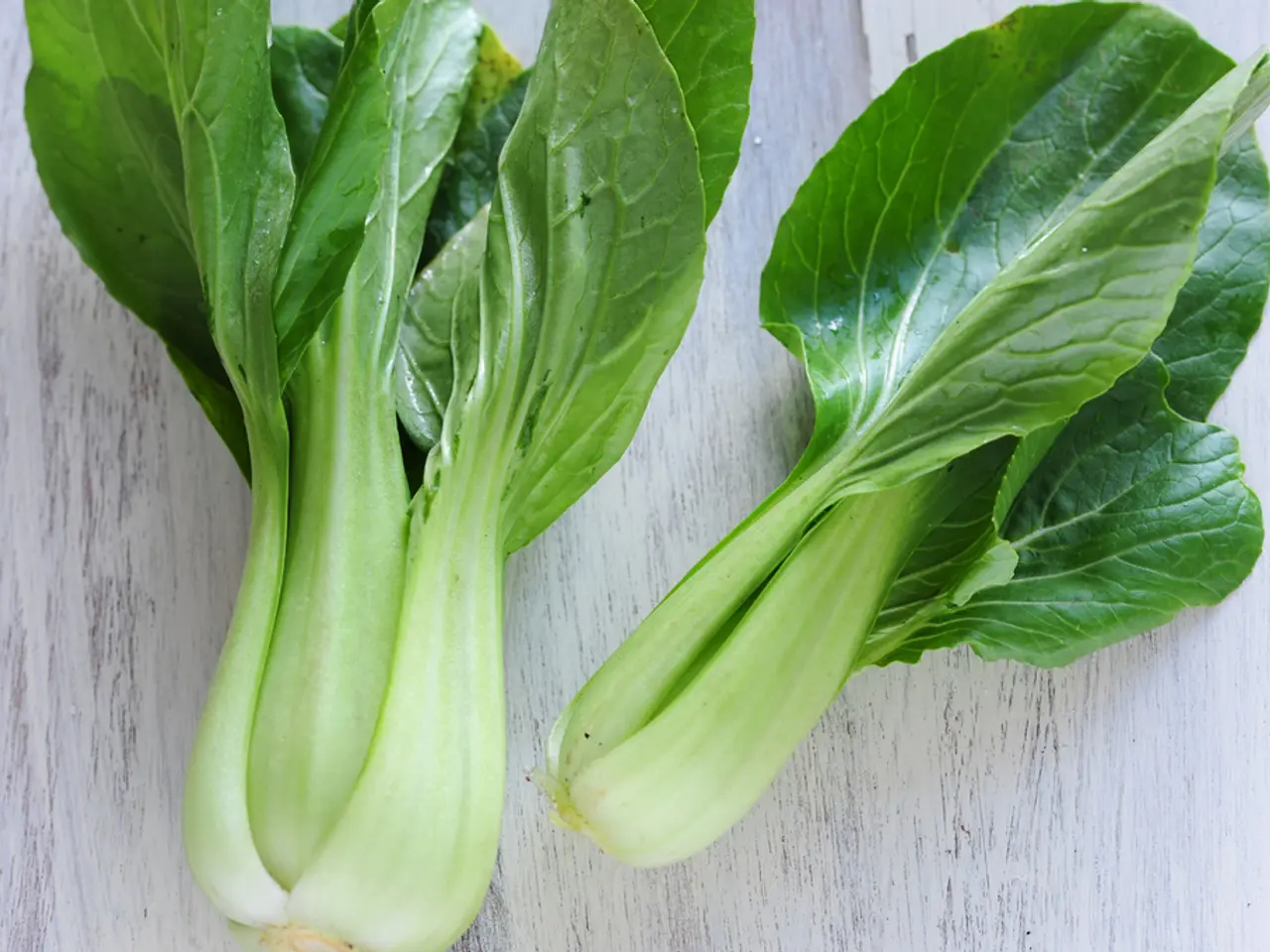Nutritious Edibles in the Battle Against Cancer
In the ongoing quest to lower the risk of cancer, a diverse and balanced diet rich in plants plays a crucial role. According to the World Health Organization, consuming 7-9 servings of whole foods daily can help reduce the risk of not only cancer but also other noncommunicable diseases.
One such group of plants that should be integrated into daily life are vegetables, nuts, legumes (such as beans and lentils), whole grains (including oats and barley), and fruits. These promote a diverse and healthy gut microbiome, are rich in fiber, and have been associated with a lower risk of colorectal cancer. Additionally, resistant starch sources like oats help produce beneficial fatty acids in the gut, further protecting colon health.
Lycopene, found predominantly in red produce such as ripe tomatoes, has been linked to a reduced risk of heart disease, prostate cancer, breast cancer, and pancreatic cancer. Omega 3 fatty acids, found in foods like fatty fish, flax, walnuts, and chia seeds, help reduce chronic inflammation in the body, which may lower the risk of some types of cancer.
Cruciferous vegetables, including broccoli, kale, cauliflower, collard greens, cabbage, and Brussels sprouts, contain unique cancer-fighting nutrients such as Indole-3-Carbinol and isothiocyanates. Indole-3-Carbinol may help protect the body from hormone-related cancers by helping it get rid of excess hormones and hormone metabolites. Isothiocyanates have been researched for their anti-carcinogenic potential.
Raw, fresh garlic contains the compound diallyl disulfide, which is considered a tumor inhibitor and may slow or stop the growth of tumors.
It's important to note that while incorporating a variety of plants, including the specific foods mentioned above, into your diet can help in cancer prevention, some plants have more research supporting their role in preventing cancer than others.
If you have specific questions or concerns about diet and cancer prevention, it's advisable to speak to a doctor. It's recommended to include these specific foods, such as omega 3 rich foods, lycopene-rich foods, raw garlic, and cruciferous vegetables, on a weekly or daily basis for cancer prevention.
In essence, eating enough plants overall is the first step in preventing cancer, while including specific foods like those mentioned above is the second step. These plants contain an array of vitamins, minerals, antioxidants, and phytonutrients that boost the immune system, helping in fighting off various illnesses, including cancer.
Read also:
- Americans Lose Insurance Under New Tax Legislation, Affecting 10 Million Citizens
- Jennifer Anolik Temporarily Assumes Lead Role in Allergy, Immunology, and Rheumatology Division
- Leading Ayurvedic Practice in Bikaner, Rajasthan
- Drug therapy for ADHD effectively minimizes risks of self-harm, accidents, and criminal activities







